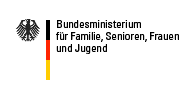Cooperation in development policy
Cooperation in development policy
From fighting poverty, education programmes and humanitarian aid to civil peacekeeping, development policy has a great many aspects. The common goal of the various projects in German development policy is the sustained improvement of economic, social, ecological and political conditions. This also includes gender equality between women and men. Gender Mainstreaming highlights the fact that cooperation in development policy must as a whole take into account the needs and potentials of men and of women.
Cooperation in development policy today is committed to the principle of acting in partnership. This does not mean just staffing, technical and financial cooperation with the governments of the respective partner countries. An integral part of this participative approach is cooperation with and between civil society and economic actors.
The strategy of Gender Mainstreaming was first developed in the subject area of development policy. An attempt had previously been made to target women as “carriers of development”. Women’s networks in particular criticised this strategy as not resulting in women being included in the real work of development policy but rather as treating women as a “special group”. They demanded that gender relations should be generally taken into account in development theory and practice as a cross-sectional strategy. This was the start of a paradigm shift in the practice of development organisations in the mid-80s – the focus was and is not just “women in development” but “gender and development”.
There are several gender aspects that are frequently important in development cooperation.
Cooperation in development policy today is committed to the principle of acting in partnership. This does not mean just staffing, technical and financial cooperation with the governments of the respective partner countries. An integral part of this participative approach is cooperation with and between civil society and economic actors.
The strategy of Gender Mainstreaming was first developed in the subject area of development policy. An attempt had previously been made to target women as “carriers of development”. Women’s networks in particular criticised this strategy as not resulting in women being included in the real work of development policy but rather as treating women as a “special group”. They demanded that gender relations should be generally taken into account in development theory and practice as a cross-sectional strategy. This was the start of a paradigm shift in the practice of development organisations in the mid-80s – the focus was and is not just “women in development” but “gender and development”.
There are several gender aspects that are frequently important in development cooperation.
erstellt von Administrator
—
zuletzt verändert:
02.01.2010 20:08





